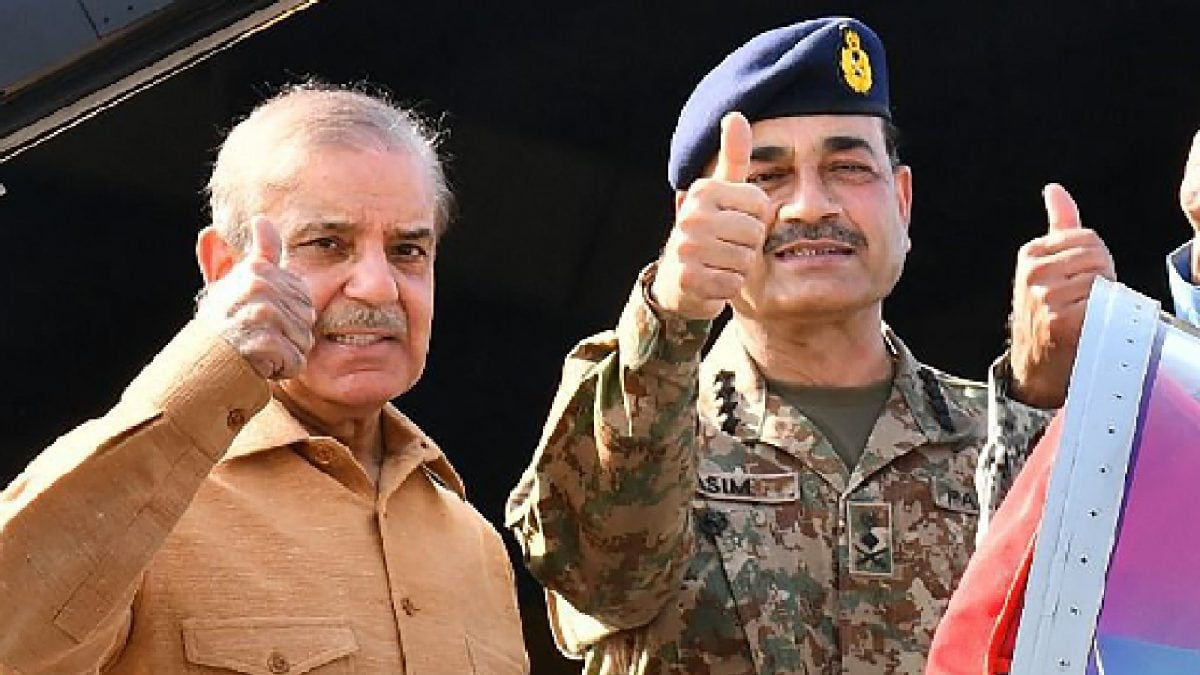Last Updated:
The confession highlights the hybrid nature of Pakistan’s political system, where the civilian leadership, despite holding office, remains subordinated to the military

Pakistan’s Army Chief Asim Munir with PM Shehbaz Sharif. (PTI)
In a revelation that has confirmed long-standing international assessments, Pakistan’s Prime Minister Shehbaz Sharif has publicly acknowledged the military’s overwhelming role in the country’s governance.
Sharif admitted that all significant decisions regarding Pakistan’s foreign policy, economy, and even its negotiations with the International Monetary Fund (IMF) are made in close consultation with the country’s powerful military chief, Field Marshal Asim Munir.
Recommended Stories
The confession highlights the hybrid nature of Pakistan’s political system, where the civilian leadership, despite holding office, remains subordinated to the military. Sharif, in his statement, revealed that he regularly consults with Field Marshal Munir, saying, “We discuss foreign policy, economy, and IMF issues. It’s team work, and we work day and night with sincerity and smooth coordination.” The public acknowledgment exposes the fact that Pakistan’s government is effectively a partnership between the civilian establishment in Islamabad and the military leadership in Rawalpindi.
Sharif’s remarks come after Pakistan’s defence minister Khawaja Asif had earlier made a similar admission during the UNGA, where he openly discussed the army’s role in shaping Pakistan’s governance. The series of statements now brings to light that Pakistan’s civilian setup is essentially ornamental, with real decision-making power resting firmly in the hands of the military establishment.
For many, this admission is nothing new, but it reinforces India’s long-held narrative that Pakistan is fundamentally an “army state” where the military dictates critical decisions. Sharif’s statements provide further validation to India’s view that Pakistan’s civilian institutions are increasingly unable to function independently, thus destabilising the nation’s political landscape and weakening its international standing.
According to diplomatic sources, the acknowledgment of a “hybrid regime” confirms that Pakistan’s leadership is not truly autonomous. It strengthens India’s position that any diplomatic engagement with Islamabad is, in effect, an engagement with the military, led by Field Marshal Munir. The prime minister’s framing of the arrangement as “smooth coordination” only highlights the fragile and fragile nature of Pakistan’s political system, where the civilian government appears to be a mere extension of military rule.
The public confirmation also comes at a time when Pakistan is facing immense financial pressure, relying heavily on international financial institutions like the IMF. The revelation that such negotiations are directly influenced by the military could further undermine Pakistan’s credibility before international lenders, signalling a nation still grappling with institutional instability.
The admission that the military holds the reins in virtually every aspect of governance makes clear that any path forward for Pakistan is likely to be determined not by democratic processes, but by the overarching presence of the military establishment in Rawalpindi.
About the Author

Group Editor, Investigations & Security Affairs, Network18
Group Editor, Investigations & Security Affairs, Network18
Islamabad, Pakistan
September 29, 2025, 15:59 IST
Loading comments…
Read More



